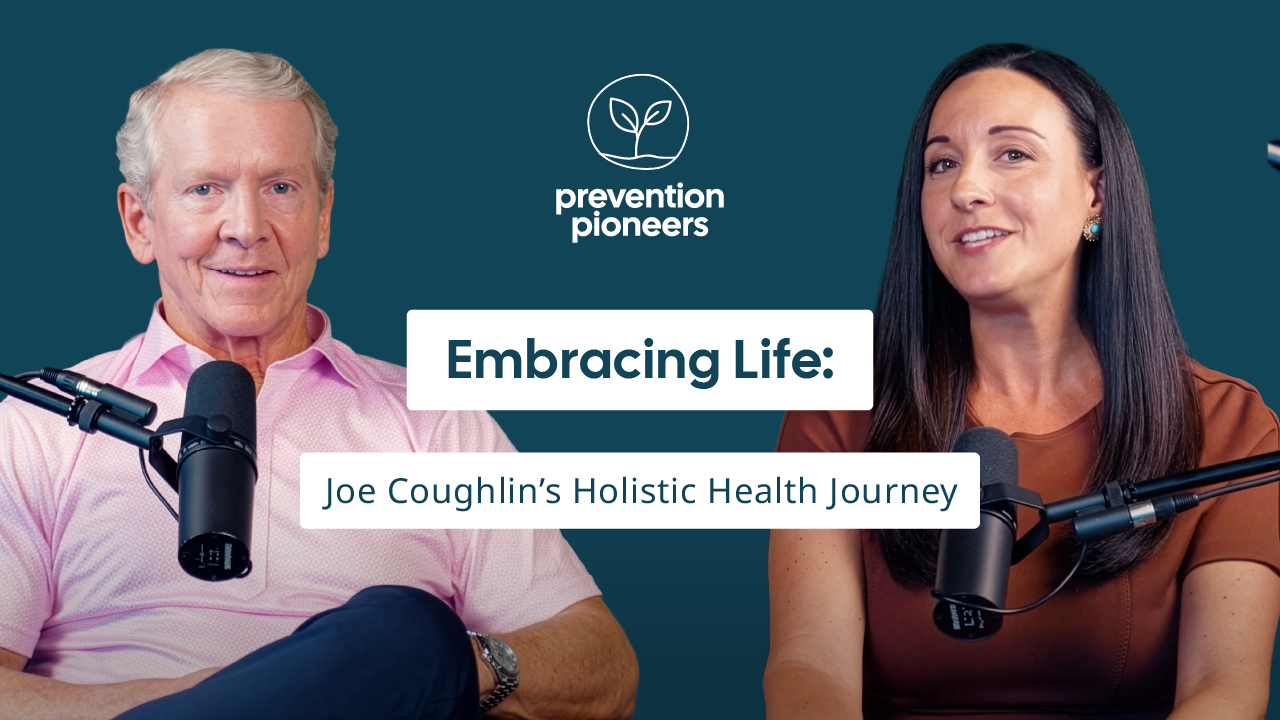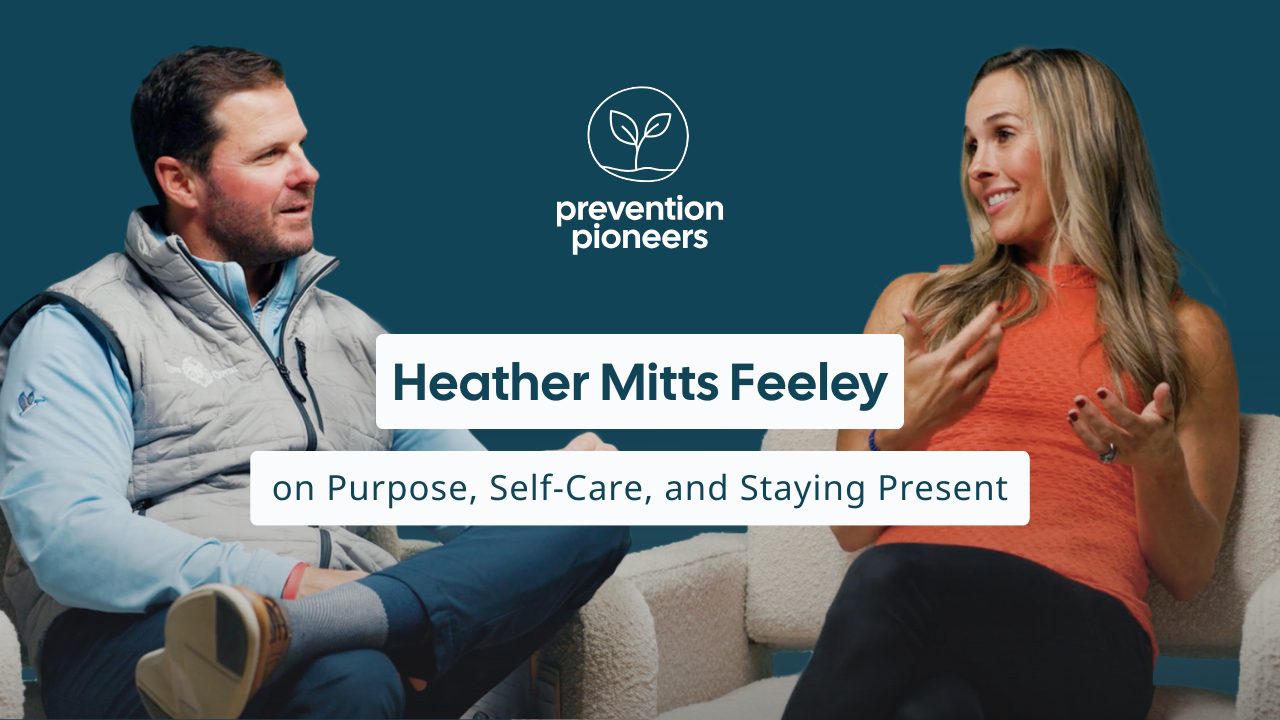What If We Could Prevent Mental Health Issues BEFORE They Happen?

Some days, it feels like we’re all just trying to hold it together, and even the best of us experience mental health challenges.
The pressures of work, life, and everything in between are piling up—and our mental health is paying the price.
But what if we didn’t have to wait until everything feels like too much to get support?
In this episode of Prevention Pioneers, Laura sits down with Jason Richmond, Chief Growth Officer at Kindly Human and long-time mental health clinician.
With a background that spans outpatient therapy, product innovation at Anthem, and mental wellness strategy at Headspace, Jason brings a rare, compassionate perspective on how and when people actually need help.
Together, Laura and Jason explore why we need to shift from crisis response to prevention in mental health care, and how companies can become true allies in that mission.
Jason also opens up about his own journey through burnout, what helped him regain balance, and why today’s employees—especially younger generations—are demanding something better.
You’ll also hear about the hidden cost of overloading clinical systems, the rising importance of peer-based support, and the small things leaders can do to create real loyalty and trust.
If you’ve ever wished the world slowed down just long enough for you to breathe—or lead with more heart—this episode is for you.
Mental Health Work Starts Too Late
Jason makes a strong case for rethinking how and when we offer support. As a therapist, he saw firsthand that most people didn’t seek help until their challenges had grown into full-blown crises. By then, treatment is harder, longer, and more emotionally taxing.
The real opportunity, he says, lies in catching people earlier—before they cross that invisible line from manageable stress into full-on mental health disruption.
That shift requires more than good intentions. It means offering tools, education, and human connection before someone needs a diagnosis.
The Hidden Cost of Overloading Therapists
One of the most eye-opening parts of the episode is Jason’s take on why access to therapy has become so limited. It’s not just demand—it’s also that too many people are being pushed into therapy who don’t actually need clinical care.
Jason estimates that about 25% of people truly need clinical mental health services. But right now, we’re sending closer to 60% down that path. That mismatch is overwhelming the system and forcing clinicians to choose between overloaded caseloads and leaving insurance networks altogether.
The result? Long wait times, limited access, and people falling through the cracks.
What About the Other 75%?
For the majority of people, therapy may not be the best or even first solution. They need education, peer connection, resilience tools, and someone to talk to when life feels heavy—but before it becomes unmanageable.
That’s where companies like Kindly Human come in, offering preventative mental health support in ways that are accessible, approachable, and stigma-free.
Jason emphasizes that just as we exercise to prevent heart disease, we should be “exercising” mentally—through small, consistent habits that build capacity and inner strength over time.
Leaders’ Responsibility to Others (And Themselves)
Jason doesn’t just talk about mental health; he lives the work. He opens up about how he knows he’s slipping—when he starts waking at 2 a.m., stuck in thought loops, or finds himself checked out.
His remedy isn’t complicated, but it’s intentional: movement, connection, setting boundaries, and a few go-to practices that bring him back to center.
And as someone who’s held high-pressure leadership roles, he knows how easy it is to ignore those signs. That’s why he encourages leaders to prioritize their own mental health first—because how they show up impacts everyone they manage.
How Managers Can Build (or Break) Culture
One of the most powerful takeaways from the episode? Real cultural change doesn’t come from policy. It comes from people—especially frontline managers.
They’re the first to notice when someone’s struggling, the first point of contact when things go sideways. But most managers aren’t trained or equipped to deal with that.
Supporting these managers—through emotional intelligence training, tools for listening, and permission to be human—is the key to building workplaces where mental wellness can truly thrive.
Final Thoughts
As the conversation around mental health continues to evolve, this episode reminds us that prevention isn’t a buzzword, it’s a strategy for surviving and thriving in modern life.
If we want to create environments where people can truly bring their whole selves to work—and build the resilience they need to keep going—we have to act before burnout sets in.
It’s not just about offering more benefits. It’s about changing the way we think about mental health altogether.
Listen to the full episode to hear how we get there and why your future self will thank you for starting now.
Prevention Pioneers is a podcast for leaders who are committed to using cutting-edge preventative wellness strategies to shift the narrative of mental health, maximize engagement, and minimize absenteeism
Don’t forget to follow/subscribe so you never miss an episode!


